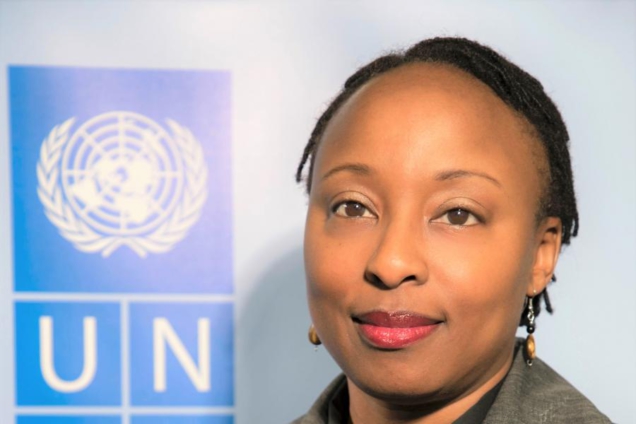This year’s International Women’s Day (IWD) comes at a time when the Covid-19 pandemic has widened the inequality gap between women and men, undoing decades of progress already made towards gender equality.
Looking at the statistics with the future in mind, the situation could worsen.
It is said that women are 24 per cent more vulnerable to losing their jobs and suffering steeper falls in income.
That’s because, to use the words of the UN Secretary General’s speech for IWD, “Women are more likely to work in sectors hardest hit by the pandemic.” They are engaged in health, social work, hospitality, food, and other services.
According to ILO, on average, 80% of Africa’s women are either self-employed or working at home – compared to 60% for men. Only 20% of Africa’s women have formal jobs – compared to 36% for men.
This means that more women, already disadvantaged, could, in the end, suffer even greater joblessness compared to their male counterparts as a result of Covid-19.
Deliberate action is urgently necessary to circumvent such an eventuality.
Quite aptly, the IWD campaign theme of #ChooseToChallenge, provides the much needed inspiration to all to challenge and call out gender bias and inequality, and to go further by being deliberate about establishing systems and measures that speak to the empowerment of women and girls.
It speaks to the need to challenge the current reality where only 1 in 4 African parliamentarians is female.
Let me offer an example: The United Nations Development Programme is working with the African Union Commission on a groundbreaking initiative known as the African Young Women Leaders Fellowship Programme.
Every year at least one young African fellow from each African country gets the opportunity of a one-year assignment at UNDP offices in Africa and around the world.
The valuable work experience and leadership skills gained through training and mentorship positions these young leaders to spearhead Africa’s acceleration towards equitable and inclusive development as captured in the Sustainable Development Goals (SDGs).
The programme’s overarching goal is to work with all member states to build a new generation of young African women leaders and experts to serve Africa and the world in designing and implementing development programmes in the context of the SDGs and Africa’s Agenda 2063.
Among the pioneer group of African fellows is a vibrant Ghanaian lady, who was deployed to work in the Sustainable Growth Unit at UNDP Rwanda in 2019.
She has worked to link youth employment with environmental protection and promote the creation of green jobs and entrepreneurship. Her role included initiatives to advance the SDG agenda and the country’s National Strategy for Transformation.
The young woman is today bustling with ambition, knowledge, and pride. She sees the program as one that will help to advance her vision, which is to be a global change agent.
Therein lies the power of deliberate empowerment. It demonstrates that deliberate efforts to remove barriers to women’s full inclusion and participation in all aspects of development can be employed by many more institutions to generate a critical mass of empowered young women to take up meaningful leadership roles in different sectors and industries across Africa and around the world.
National governments too must play their part to improve gender equality and empowerment, not only through passing laws and policies, but most importantly by ensuring their implementation.
For instance, Ghana is a signatory to various regional, continental and international frameworks, and has pledged its commitment to promoting gender equality and women empowerment.
This is commendable. It is important that action follows these signatures, such as implementing formal affirmative action programs for women, particularly in decision making.
Instruments like the National Gender Policy, developed with comprehensive insights into the whole spectrum of empowerment, rights and access to justice, leadership and accountable governance, need political goodwill to guarantee equal opportunities for women.
Very importantly, when women are part of the equation, when they have a say in government, the result is bigger investments in social protection and greater narrowing of poverty gaps.
When women participate in decision-making in parliament, you can bet on nations embracing more stringent policies which will lead to improved development outcomes in health, education, and greater service delivery.
Investing in women leadership is critical to Africa’s development. And as the former UN Secretary General, the late Kofi Annan, once remarked: “There is no tool for development more effective than the empowerment of women.”
Angela Lusigi is the UNDP Resident Representative in Ghana.
Latest Stories
-
Farouk Aliu Mahama embarks on reconciliation tour in Yendi
5 mins -
Ignore unofficial report of increase in fees and charges on Foreign Currency Accounts – Ecobank
15 mins -
Danny List secures land for Ghana’s first golf academy
15 mins -
United Nations, partners to roll out ‘I Pledge for Peace Campaign’
20 mins -
NPA sets ₵13.2 as price floor for petrol; ₵13.7 for diesel
30 mins -
Women accused of booing Zimbabwe’s first lady freed
31 mins -
TGMA: Nominees for Producer of the Year, three others announced
46 mins -
More African countries recall batch of cough syrup
56 mins -
Rust trial: How events unfolded after fatal shooting on Alec Baldwin film set
1 hour -
‘Drive Time’ on Joy FM airs from South Africa in June
2 hours -
Ghana’s debt sustainability journey: All you need to know
2 hours -
Mahmud Adeleye, the African AI expert trying to make a difference
2 hours -
Women accused of booing Zimbabwe’s First Lady freed
2 hours -
Ghana sets sights on hosting 2026 Senior African Athletics Championships – Bawa Fuseini
2 hours -
Telecel Ghana Music Awards board makes changes to nominations after review
3 hours

